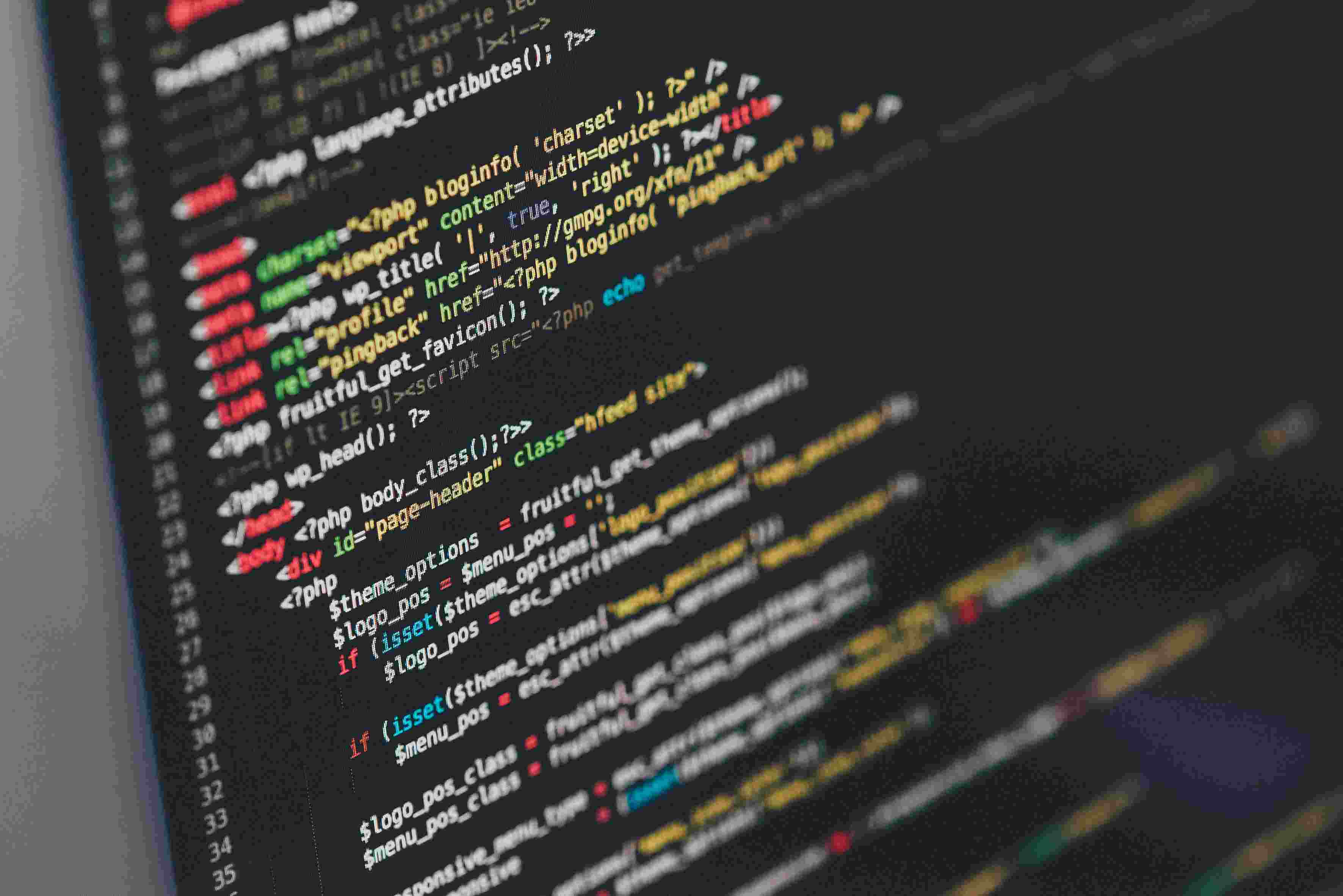Ace Your Software Job Interview: Essential Preparation Tips
Get ready to impress at your next software job interview with our expert preparation tips. Click to unlock your potential!

Introduction
When it comes to software job interviews, preparation can be the golden key that unlocks the door to your dream career. Navigating the landscape of technical queries and behavioral questions requires not just a strong foundation in coding but also a keen sense of self-awareness. Delving into company culture, brushing up on algorithms, and practicing your problem-solving narrative are pivotal steps on this journey. With the right approach, you can transform anxiety into confidence, turning each interview into an opportunity to showcase your unique blend of skills. Let's embark on a mission to equip you with essential strategies, ensuring you step into your next interview poised for success.
Pre-Interview Research and Preparation
Like a detective piecing together clues, thorough research before your interview can give you the upper hand.
Company Background: The Importance of Doing Your Homework
Diving deep into the company's history, mission, and products can arm you with the knowledge to impress. Start by scouring the company's website, reading up on recent press releases, and understanding their position in the industry. Take note of any awards or recognitions they've earned, as this could be great conversational fodder. It's not just about parroting facts; it's about showing your genuine interest and how you see yourself fitting into their story.
Here are a few areas to consider:
- Company milestones: Significant achievements that shaped the company's journey.
- Competitive landscape: The major players and the company's unique selling proposition.
- Cultural values: Core principles that the company adheres to, which might align with your own values.
Know Your Interviewers: A Personal Touch
Understanding the backgrounds and interests of your interviewers can help you build rapport and a lasting impression. A quick LinkedIn search can reveal their professional journey, publications, and even shared connections. This isn't about stalking, but rather about finding common ground or topics for thoughtful questions. You could comment on a project they led or an article they wrote, which shows you've done more than just a superficial company review.
Use this knowledge to connect on a more personal level:
- Education and career path: Insights into their professional development.
- Industry contributions: Any key talks, articles, or books they've authored.
- Personal interests: Hobbies or causes they are passionate about that you can appreciate or share.
Mock Interviews: Practice Makes Perfect
Engaging in mock interviews with peers or mentors is a tried-and-true method to iron out any kinks in your delivery. Treat it as a dress rehearsal; simulate the interview environment as closely as possible. Get feedback on both your technical answers and soft skills, like body language and eye contact. If possible, record the session to self-evaluate later. Tackling a variety of questions, especially the challenging ones, boosts your confidence and helps you think on your feet, a crucial skill during the real deal.
Benefits of mock interviews include:
- Feedback loop: Constructive criticism to refine your responses.
- Stress management: Learn to stay composed under pressure.
- Adaptability: Ability to pivot your strategy based on different interviewing styles.
Technical Skills Brush-up
In the ever-evolving world of software, keeping your technical skills sharp and up-to-date is a non-negotiable aspect of interview preparation. Before diving into the specific areas of improvement, it's crucial to acknowledge the competitive edge that comes with a robust technical skillset. Now, let's explore how to ensure your technical prowess stands out in a software job interview.
Refreshing Core Concepts
Revisiting the fundamental principles of programming and software design can ensure a sturdy foundation when faced with technical questions. It's like reacquainting yourself with an old friend \- you know the basics, but a refresher can make all the difference.
- Review data structures and algorithms: A staple for any software interview.
- Solidify your understanding of design patterns: They demonstrate sophisticated problem-solving abilities.
- Brush up on database management: SQL or NoSQL, know your queries and schemas.
Staying Current with New Technologies
Staying abreast of the latest trends and technologies in software underscores your commitment to continual learning and growth. The tech industry waits for no one, and interviewers are on the lookout for candidates who show initiative in keeping their skills relevant.
- Follow industry news: Sites like Hacker News provide invaluable insights.
- Experiment with new tools and frameworks: Employers value versatility and adaptability.
- Engage with the developer community: Platforms like GitHub are goldmines for trending projects.
Hands-on Practice with Coding Challenges
Tackling coding challenges on platforms like LeetCode or HackerRank can fine-tune your problem-solving skills under time constraints. It's an exercise not just for the mind, but for your coding reflexes, allowing you to demonstrate technical fluency during intense interview situations.
- Regularly solve problems: Build a daily or weekly routine.
- Simulate real interview scenarios: Time yourself and verbalize your thought process.
- Learn from the community: Analyze different solutions for the same problem to broaden your perspective.
Mastering the Art of Communication
Articulate communication is the linchpin that connects your thoughts to the interviewer's understanding, transforming complex ideas into coherent narratives. Excelling in conveying your qualifications and how your experiences align with the company's needs is pivotal.
Effective communication is more than just exchanging information; it's about making sure your message resonates. It involves active listening, clear articulation, and the ability to tailor your message to the audience.
Here are some key strategies to enhance your communication skills before the big day:
Key Strategies for Effective Communication
- Clarify your thoughts before you speak. Jot down key points you want to convey.
- Practice active listening. Show engagement by nodding and asking relevant follow-up questions.
- Adapt your language to the interviewer's level of technical expertise; avoid jargon if unnecessary.
The Power of Non-Verbal Cues and Storytelling
"Remember, it's not just what you say, it's how you say it," highlights an article from The Muse. Using positive language, maintaining eye contact, and employing body language that exudes confidence all contribute to the message you're sending.
Incorporate storytelling to illustrate your achievements; this not only makes your responses memorable but also demonstrates your capacity to synthesize information.
Bringing It All Together
No matter how technically adept you are, if you can't communicate effectively, your expertise might not shine through. You've got this—let your confidence and preparation speak volumes, and your words will surely follow suit.
For additional tips and strategies on acing your software job interview, delve into resources available on popular platforms like GitHub or Stack Overflow
Handling the Unexpected with Grace
When the curveballs come flying, it's your ability to stay composed and think on your feet that will set you apart. True grace under pressure is a trait that can be honed with practice and mindfulness. To handle the unexpected during a software job interview, you need to prepare for unpredictability itself.
Firstly, consider common interview surprises and strategize responses. You might be presented with a brain teaser, asked about a technology you're unfamiliar with, or face a panel interview when you expected a one-on-one. Secondly, embrace the power of the pause. Taking a brief moment before responding collects your thoughts and shows you're not easily flustered. Lastly, display adaptability. Interviews are as much about problem-solving and attitude as they are about technical skills. Show you can pivot with ease, and you'll demonstrate the very resilience and flexibility employers value.
Above all, remember the value of a positive mindset. When faced with something unexpected, view it as an opportunity to showcase your adaptability and critical thinking skills. By maintaining a calm demeanor and a can-do attitude, you'll navigate through any interview surprises with poise and professionalism.
Strategies for Unpredictable Moments
Common interview surprises:
- Brain teasers or unexpected questions
- Technological queries outside your expertise
- Variations in interview format (panel vs. one-on-one)
The power of the pause:
- Collect your thoughts
- Show calmness under pressure
- Prevent hasty, unplanned responses
Displaying adaptability:
- Approach problems as opportunities
- Pivot with ease during discussions
- Exhibit flexibility in thinking and attitude
Conclusion
Embarking on the journey of a software job interview can be an exhilarating challenge that, with the right preparation, leads to new professional heights. This voyage isn't just about showcasing your technical prowess; it's also an opportunity to demonstrate your passion, your adaptability, and your alignment with the company's culture and values. As you stand on the brink of this pivotal moment, remember that each interview is a unique narrative of your professional saga, and you are the protagonist ready to make a mark.
In the end, whether you're a seasoned developer or a fresh face in the tech scene, your interview is the opening act to a potential new chapter in your career. Reflect on the insights and strategies discussed, from understanding the interview process to honing your communication skills, and you'll be equipped to tackle any question with poise. Ready to leap into your next opportunity? Explore the myriad of options at EchoJobs and find your next software engineering role that resonates with your aspirations.
FAQs
What is the best way to prepare for a software job interview?
The best way to prepare for a software job interview is to thoroughly understand the job description and the company you're applying to, brush up on your technical skills with practice problems, engage in mock interviews, and prepare to articulate your thought process clearly. It's also beneficial to stay current with industry trends and technologies that are relevant to the role you're targeting.
How important are soft skills in a software job interview?
Soft skills are increasingly important in software job interviews because they demonstrate your ability to communicate effectively, collaborate with teams, and adapt to various situations. Hiring managers often look for candidates who not only excel technically but can also fit well within the company culture and contribute positively to the team dynamic.
Can you give an example of a good question to ask the interviewer?
A good question to ask your interviewer could be about the specific challenges the team is currently facing and how your role would contribute to solving them. This shows your interest in the company's objectives and your eagerness to be involved in meaningful work. You can also inquire about the company's approach to professional development and growth opportunities.


